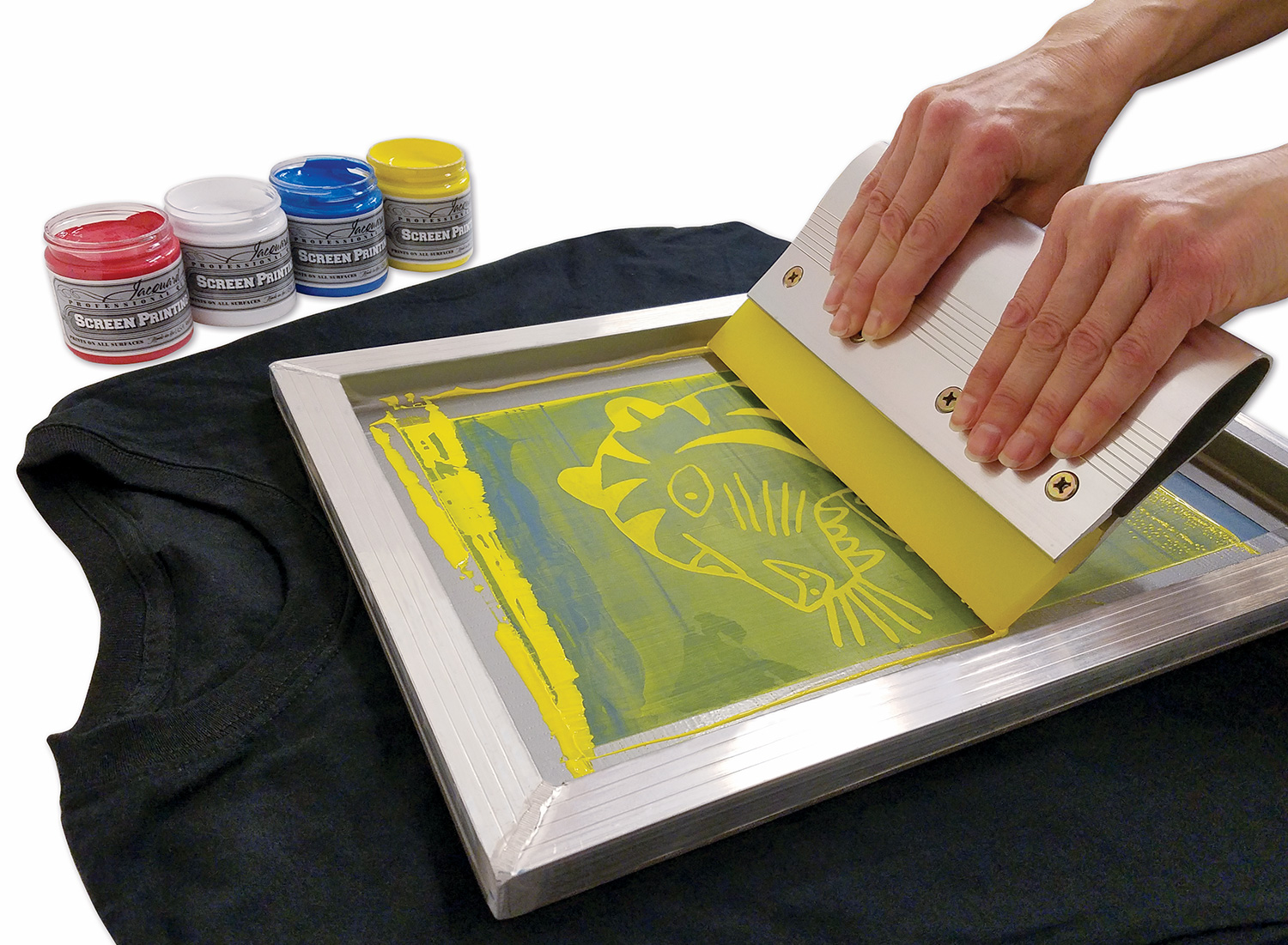ChatGPT said: Easy process to ordering with 10:9 Design Abilene
Wiki Article
The Necessary Guide to Recognizing Screen Printing and Its Versatile Utilizes
Screen printing has a rich history that dates back to ancient times, developing into a sophisticated method utilized across numerous markets today. This guide discovers the details of the screen printing procedure, describing its applications in home, style, and advertising and marketing design - 10:9 Design Embroidery. Recognizing these principles can open creative capacity for both imaginative and commercial projects. The following sections will certainly disclose vital ideas and methods to improve one's screen printing endeavorsThe Background of Screen Printing
Screen printing has origins that trace back centuries, its advancement shows the imaginative and technological innovations of different societies. Coming from old China, the method was originally utilized for embellishing textiles and later spread to Japan, where it came to be essential to Ukiyo-e woodblock printing. The method changed to Europe in the 18th century, where it got appeal amongst artisans and commercial printers. The invention of image solution in the 20th century reinvented screen printing, allowing for even more detailed designs and higher efficiency. Artists like Andy Warhol further thrust its popularity, using the tool to create iconic works that blended commercialism and fine art. By the late 20th century, screen printing had established itself as a functional strategy, used in style, marketing, and art. Today, it proceeds to advance, integrating digital modern technology and broadening its applications throughout various markets.The Screen Printing Refine Explained
Screen printing transforms artistic visions right into concrete layouts through a series of precise steps. Originally, an image is produced and then moved onto a screen, typically made from great mesh fabric extended over a framework. A light-sensitive emulsion is applied to the screen, which is subjected to light, solidifying in areas not covered by the image. After cleaning out the unhardened emulsion, a pattern is developed.Next, the screen is put over the substrate, whether it be material, paper, or one more material. Ink is then pushed via the open areas of the stencil making use of a squeegee, depositing the design onto the substratum below. This procedure can be repeated for multiple colors, calling for different screens for each and every hue. The printed thing is healed utilizing heat to guarantee the ink sticks effectively, resulting in a long lasting, vibrant design all set for use.
Sorts Of Screen Printing Techniques

In addition, specialized methods, such as discharge screen printing, eliminate color from the fabric to produce softer prints, while aluminum foil screen printing applies metallic foil to achieve a shiny surface (10:9 Design Company). Each strategy offers unique features, accommodating various creative needs and manufacturing scales, ultimately broadening the possibilities within the screen printing domain name
Applications of Screen Printing in Numerous Industries

In addition, the signage and advertising fields utilize screen printing for producing distinctive screens and banners. This approach enables bold colors and elaborate designs that catch interest. In electronics, screen printing is employed for using conductive inks to circuit boards, crucial for element links. Moreover, the home décor sector accepts screen printing to produce distinctive designs on textiles and wall surface art. Overall, screen printing works as a critical device across varied areas, improving items with personalized and aesthetically enticing graphics.
Tips for Successful Screen Printing Projects
While embarking on a screen printing job, careful focus to information can considerably improve the last outcome. Picking high-quality products is important; this consists of the screen, inks, and substratums. Making use of appropriate mesh counts can affect ink deposition and detail resolution. Preparation is just as important; comprehensive cleansing of displays and appropriate exposure times ensure crisp prints.Next off, precise enrollment is crucial for multi-color prints. Using placement devices can aid attain precise layering. Furthermore, testing prints 10:9 Design Screen Printing on scrap products before production aids determine possible concerns without throwing away resources.

Frequently Asked Inquiries
What Products Are Best for Screen Printing on Fabric?
Cotton and polyester blends are perfect for screen printing on textile as a result of their resilience and ink absorption. Additionally, specialized textiles like silk or canvas can create one-of-a-kind textures and surfaces, boosting the total layout high quality.Just how Do I Clean and Maintain Screen Printing Equipment?
To keep and cleanse screen printing tools, one need to consistently wash screens with ideal solvents, evaluate mops for wear, lubricate moving components, and store all products in a completely dry, dust-free setting to prolong their lifespan.What Are the Ecological Impacts of Screen Printing?
Screen printing can have significant environmental impacts, including chemical waste from solvents and inks, water use throughout cleaning procedures, and power consumption. Environment-friendly materials and sustainable methods are crucial for decreasing these negative effects.Can Screen Printing Be Done at Home Effectively?
Screen printing can be efficiently done at home with the right materials and methods. Hobbyists can create quality prints, though success depends on their ability level, equipment, and understanding of the process involved.
What Are the Prices Related To Starting a Screen Printing Business?

Starting a screen printing organization includes costs for devices, materials, and workspace. Initial expenses normally range from a couple of hundred to numerous thousand dollars, relying on the scale, top quality of equipment, and desired production ability.
Screen printing has a rich history that dates back to ancient times, developing into an innovative strategy utilized throughout different sectors today. An additional strategy, rotary screen printing, utilizes cylindrical displays, promoting constant printing on textile rolls, consequently improving performance for massive productions. In addition, specialty strategies, such as discharge screen printing, eliminate color from the material to create softer prints, while aluminum foil screen printing applies metal foil to attain a shiny coating. In the fashion market, screen printing is commonly made use of to produce vibrant layouts on apparel, making it possible for brands to display their distinct designs. Cotton and polyester blends are suitable for screen printing on fabric due to their longevity and ink absorption.
Report this wiki page